Addicted to pursuit of freedom, Black feminists draw from past to empower new generations to live tomorrow now
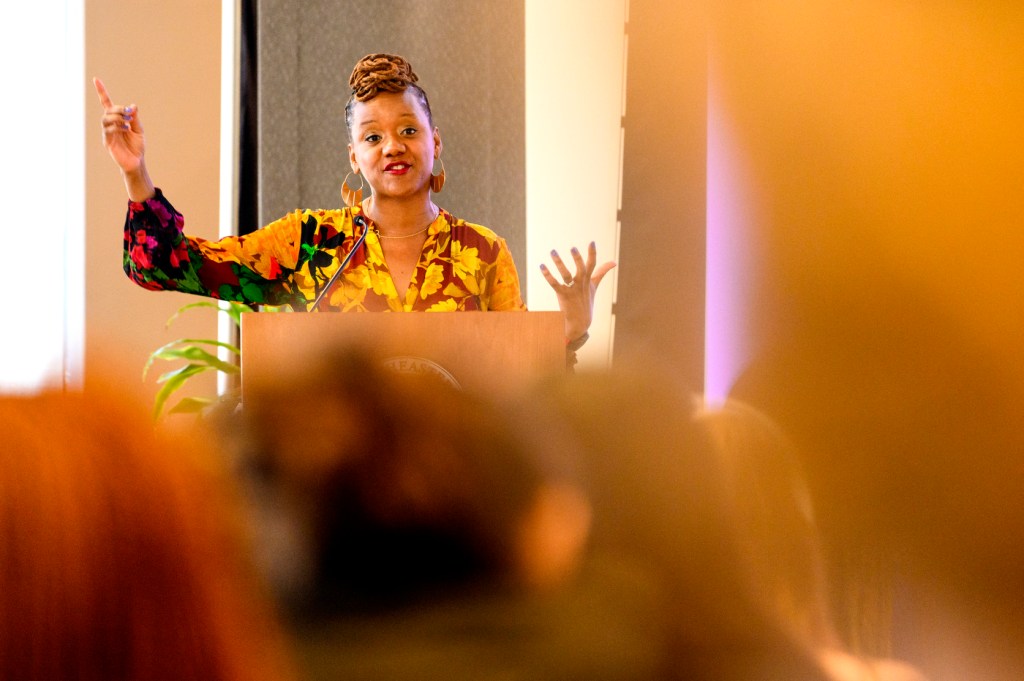
Demita Frazier, a lifelong Black feminist, social justice activist and writer, was 6 years old when her mother sat her down and said, “You are going to hear from people that they think that they’re superior to you because they’re white. It’s a lie.”
“And it was emphasized to me over and over in time as I was growing up,” said Frazier, who graduated from Northeastern University with a Juris Doctor degree.
In 1974, together with sisters Barbara and Beverly Smith, Frazier co-founded the Combahee River Collective in Boston, a Black feminist and lesbian organization resisting racial, sexual, heterosexual and class oppression. The statement they wrote for Combahee River Collective became a key document in developing contemporary Black feminism.
“What was interesting for me as a Black feminist all these years is watching in the arc of time all of the women, unsung and some acknowledged, unseen, who have contributed to this enterprise,” Frazier said during the second annual bell hooks symposium, organized by the Northeastern University Africana Studies Program. “I am grateful for anyone who cares for the definition and ideas of freedom, true freedom, that are embedded in the Black feminist theories.”
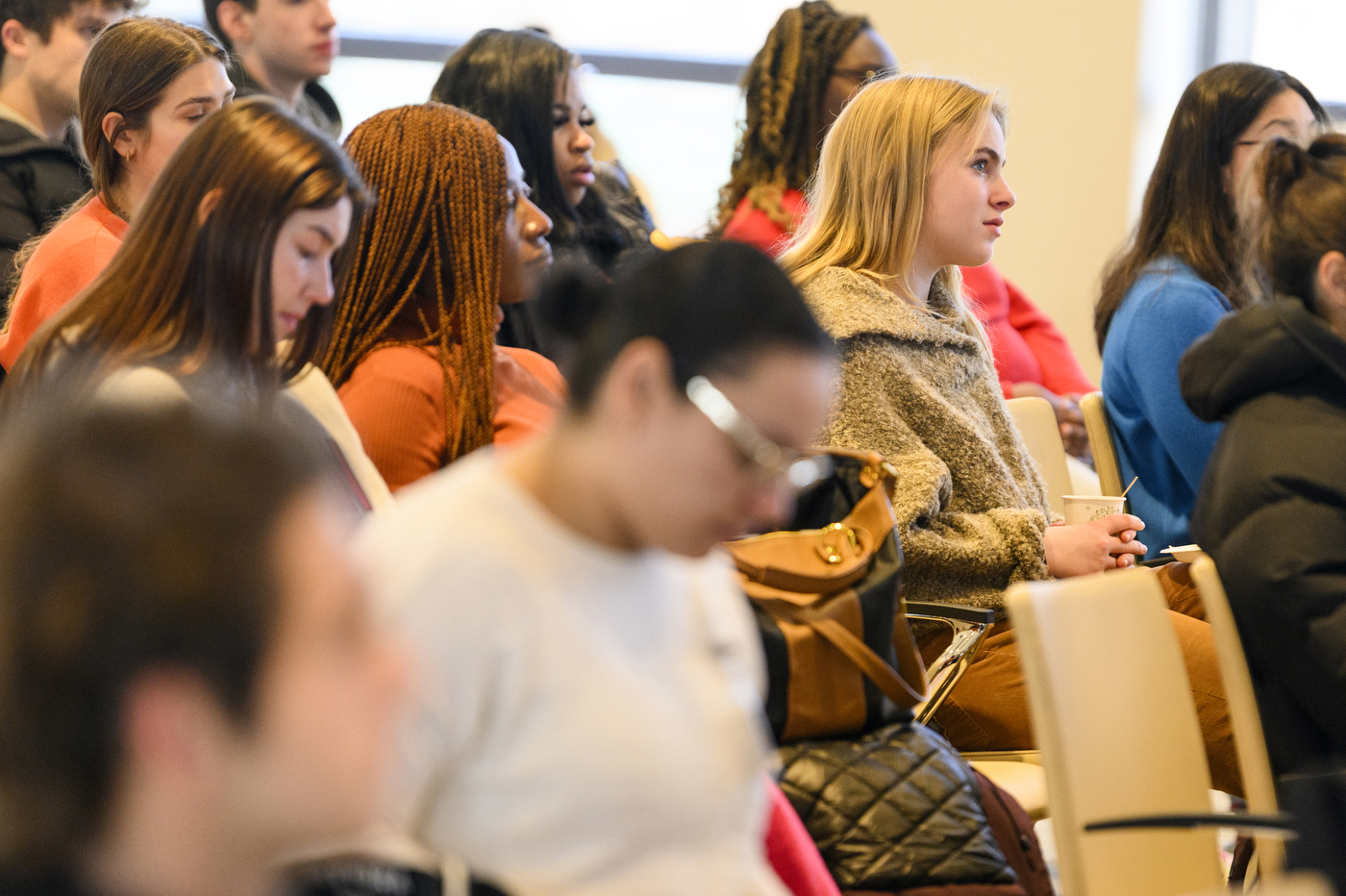
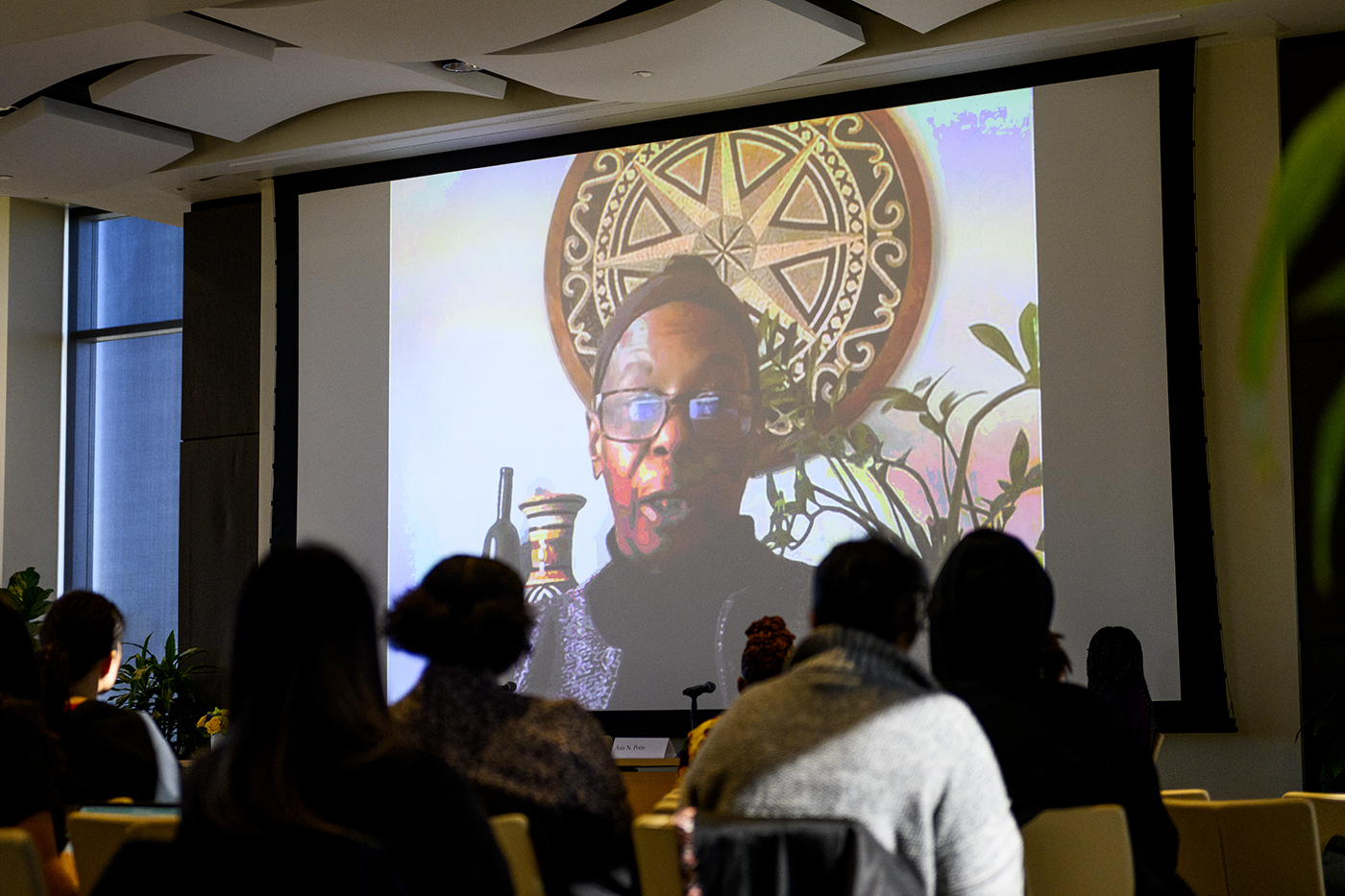
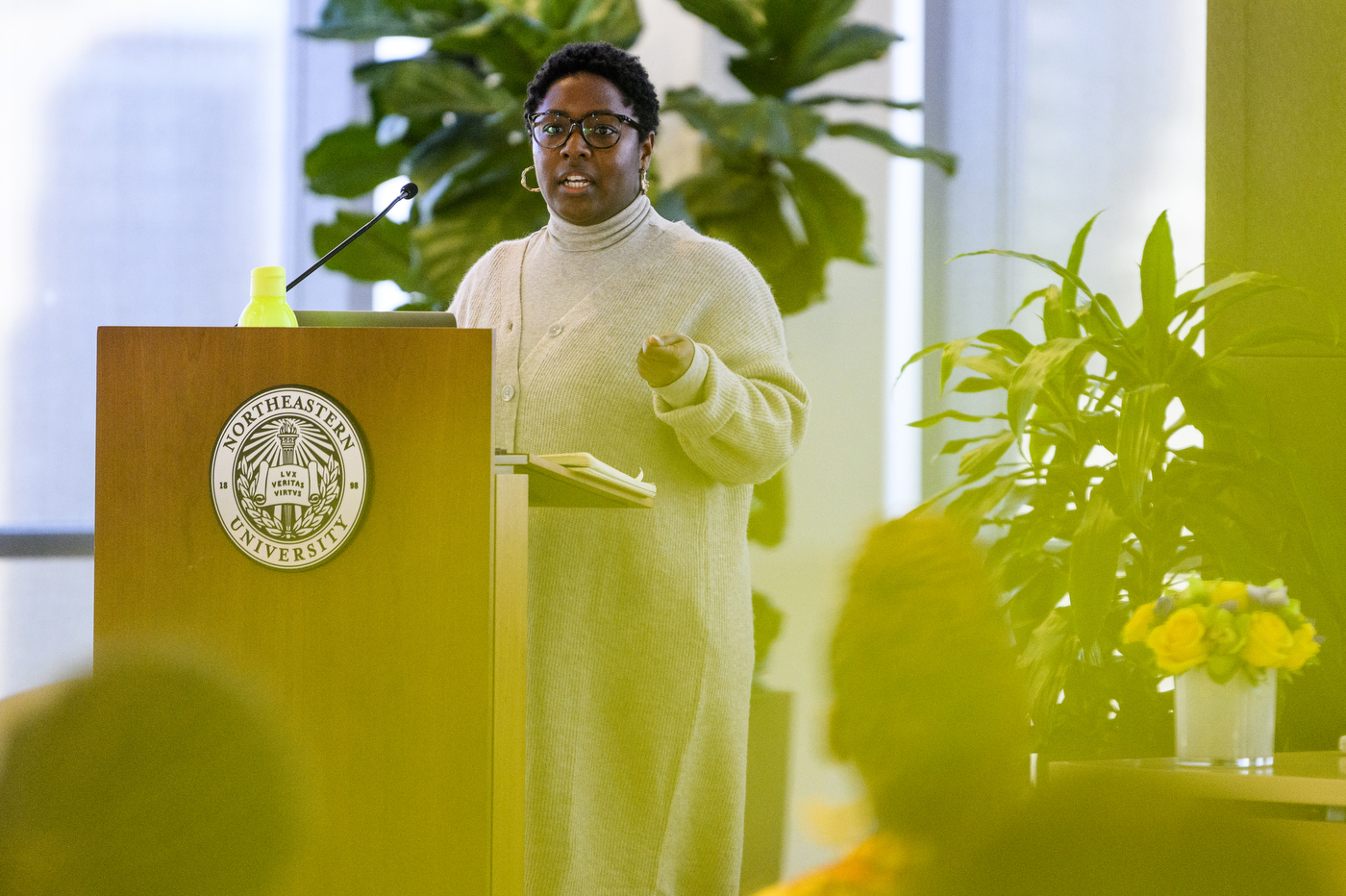
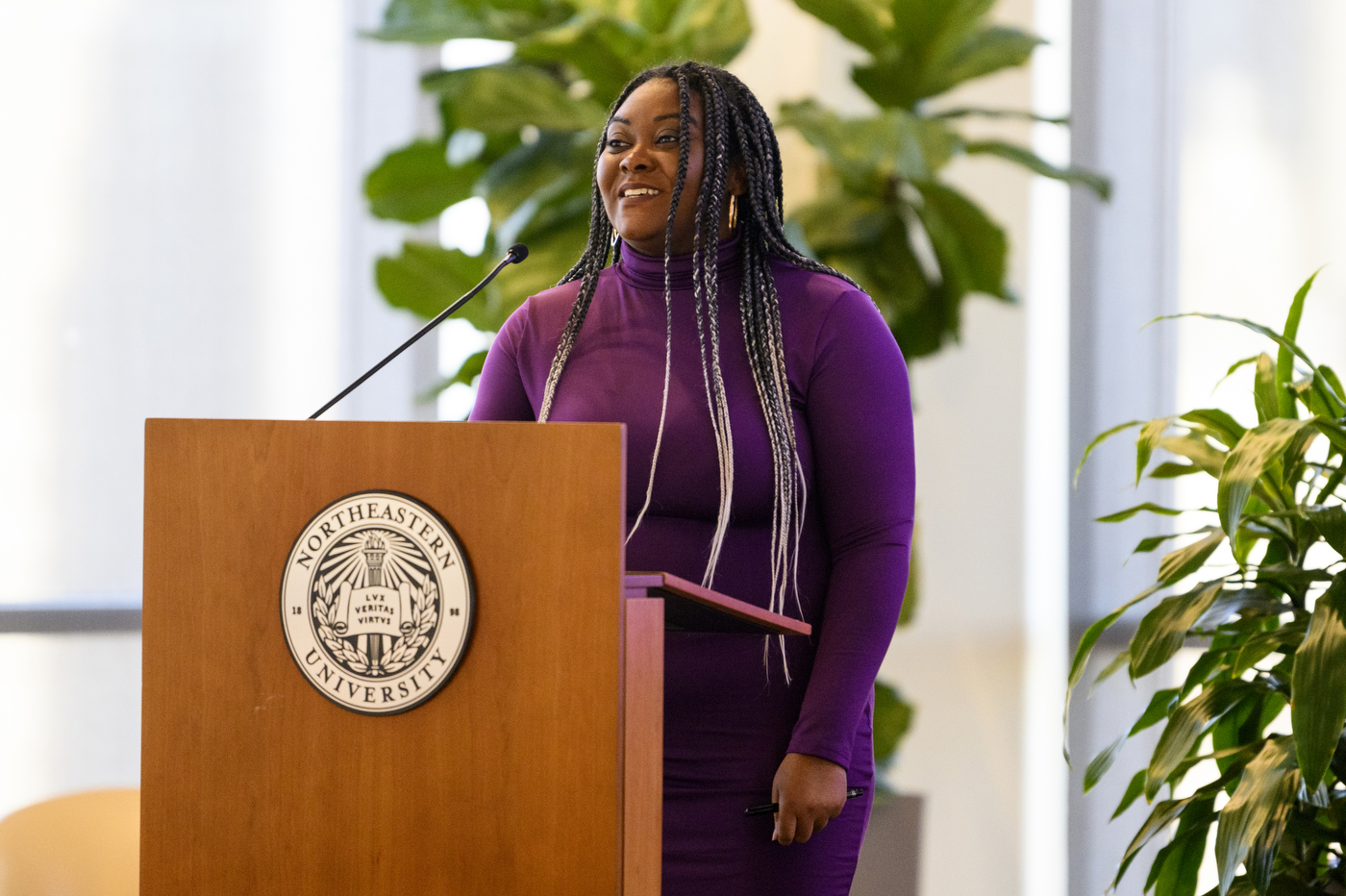
The theme of the symposium was “Black feminism, Black freedom,” which was inspired by the long history of Black feminism as a freedom project from its inception, said Régine Michelle Jean-Charles, director of Africana studies, dean’s professor of culture and social justice and professor of Africana studies and women’s, gender and sexuality studies, during the introductory remarks.
“The compelling and too often elusive concept of freedom is one that has preoccupied Black feminists for centuries since the earliest conceptualization of the term and even before we have fought for, worked towards and strived for freedom,” Jean-Charles said.
During the panel titled “Until Black women are free, none of us are free,” panelists Jovonna Jones, assistant professor of African American literature and culture at Boston College, Asia Potts, Northeastern doctoral student studying contemporary Black literature, and Frazier reflected on the origins of Black feminism, the notion of freedom and Afrofuturism as a Black feminist movement that continues to empower Black girls and women.
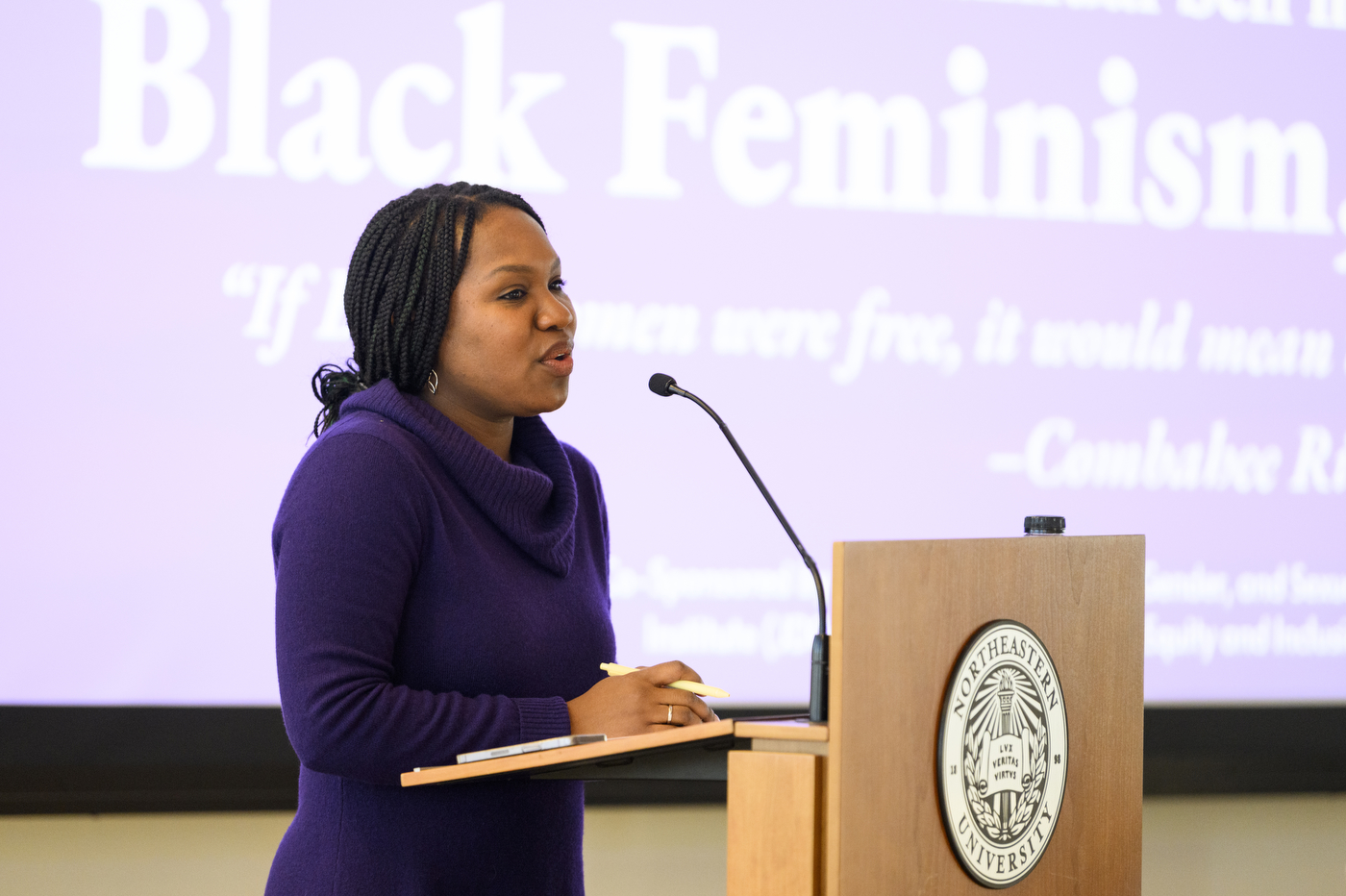
Frazier grew up in 1950s and 1960s Chicago. Her parents worked in two large Chicago clubs that were central to Black cultural organizing, she said, which exposed Frazier to the ideas of the growing Civil Rights movement from a young age.
There was a real sense of restlessness, Frazier said. Men like her father were still harboring the disbelief they had felt returning from World War II and Korean War and finding out that their status in America hadn’t changed at all despite their service to the country.
Black people were done waiting, Frazier said. They were ready for a real acknowledgement of the falseness of white supremacy and moving forward into a world of freedom and being able to make choices and having agency.
However, although both men and women participated in community organizing, the emphasis was on supporting Black men to the exclusion of supporting the agency of Black women, Frazier said. Women were told to wait their turn, step back and give Black men a space to be men, she said.
“Everywhere I turned as a young teenager, I was finding myself constantly being blocked by men trying to tell me what to do,” Frazier said.
She said she realized that men were focused on building their power and were uninterested in conversations about parity and equity of the two genders. She also recognized that power and control determine the possibilities of one’s life, Frazier said.
This internal struggle happening in the Black community led Fraizer to become a feminist, activist and political organizer.
“I am addicted to the pursuit of freedom,” she said. “I’m still in it.”
Jones dedicated her remarks at the symposium to defining Black freedom. She drew from the wisdom of three icons—singer-songwriter Nina Simone, scholar, feminist author and activist bell hooks, and Black feminist theorist Tina Campt. Bell hooks was the pen name of Gloria Jean Watkins.
Jones revisited the 1970 interview of Simone, where the singer not only says that freedom for her is equivalent to absence of fear, “no fear,” but also that freedom is “like a new way of seeing” something.
Jones then turned to bell hooks, who writes in “Yearning: Race, Gender, and Cultural Politics” that “political desire for liberation must be in harmony with our embodied everyday desires and passions.”
“Freedom is perhaps the ability for Tyre Nichols to be able to roam Memphis in the South and take photos of the landscape, and come home alive. Freedom is the ability for Jasmine Star Parker to be able to walk around D.C. in peace and come home to her people laughing and dancing,” Jones said. “But we live in a world where they, in the fullness of their lives, are being disposable.”
From an exercise Jones conducted with her students in the wake of Nichols’ harrowing death, she learned that what is helpful for a young generation, walking around anxious and on edge, is to imagine a world where they feel the way they want to feel.
“Peace, compassion and cooperation. These were all desires and values that emerged from these two students tuning into their bodies,” Jones said.
The exercise, Jones said, allowed her students to experience a different grammatical tense. The grammar of Black feminist futurity, as Tina Camp writes, a performance of a future that hasn’t yet happened, but must.
“It should be true that I can feel peace and safe in my existence,” Jones said.
She concluded that, based on what was articulated by Nina Simone, bell hooks, Tina Camp and her students, freedom is a feeling, a new way of seeing linked with individuals’ pleasures, passions and fulfillments that involves living the future now.
Potts, a creative writer and the youngest person on the panel, said that her introduction to Black feminism happened at bookstores, beginning with “Their Eyes Were Watching God,” a classic of the Harlem Renaissance published by Zora Neale Hurston in 1937.
Potts’ research now focuses on Afrofuturism, an evolving concept and genre in literature, music and visual arts that is based in Black history and culture and reimagines, reinterprets and reclaims the past and present through science-fiction, technology and futuristic elements for a more empowering and inclusive tomorrow.
“My research examines Afrofuturism as more than a genre, as a Black feminist movement and a cultural moment in which Black creators make demands for social justice,” Potts says.
In Afrofuturistic works that are aimed at inhabiting both creative and critical spheres where inspiration meets interrogation, Black women claim and occupy space, Potts says. She argues that Afrofuturism has long been a part of the craft of Black women writers and Black women thinkers.
She writes for young girls of color, Potts said, “who don’t even exist yet, so they know something is waiting for them when they arrive,” because Afrofuturism shows them that Black women “can continue to push, continue to create and continue to imagine.”
“For me Afrofuturism is a love letter to our future selves,” Potts said. “An open and ongoing letter. Opening lines: ‘Dear little Black girl, do things, act accordingly, rebelliously, freely.’”
Alena Kuzub is a Northeastern Global News reporter. Email her at a.kuzub@northeastern.edu. Follow her on Twitter @AlenaKuzub.






